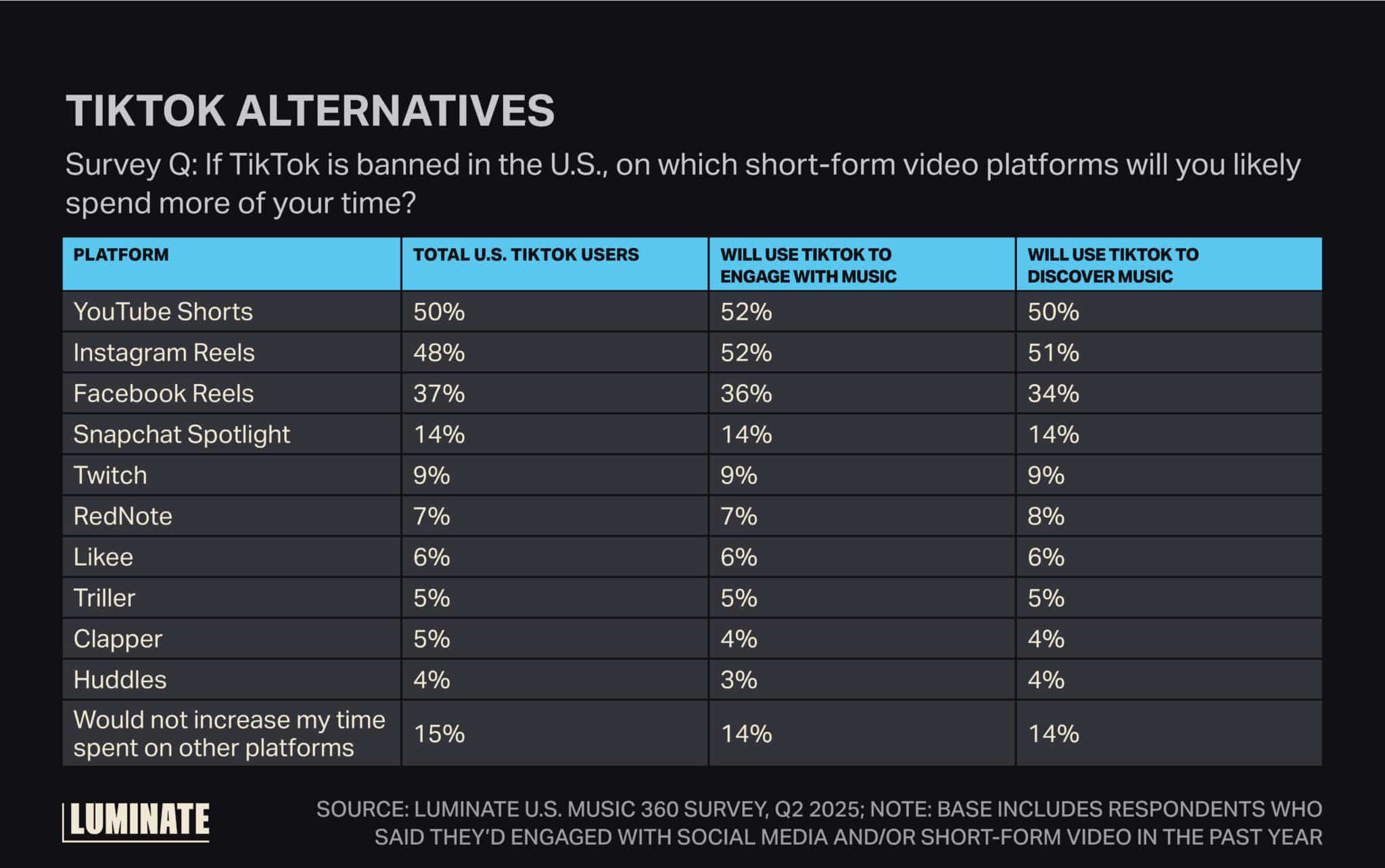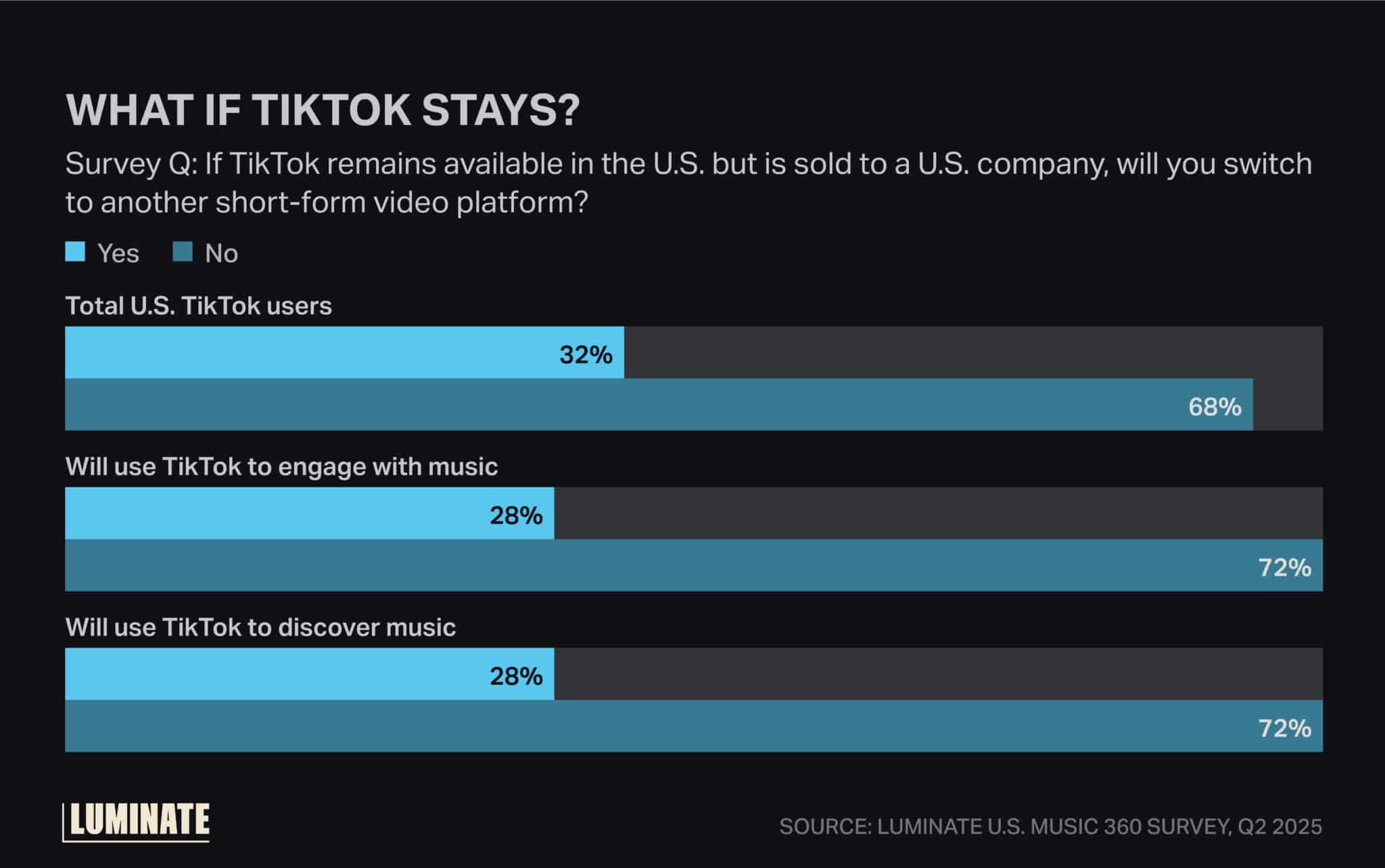After months of postponements, the U.S. government’s ban on TikTok is (maybe) finally happening on Sept. 17.
The question of whether TikTok parent company ByteDance will actually sell its golden goose or let the app go dark in its biggest market has weighed particularly heavily on music creators and fans.
The app has undoubtedly had a profound impact on the entire music industry, especially when it comes to discovery, with 84% of songs that made last year’s Billboard Global 200 first going viral on TikTok, per the Music Impact Report, commissioned by TikTok and produced by Luminate.
It’s hard to predict the outcome of a TikTok-size hole in the music world, but new Luminate Insights survey data from May and June suggests users’ love of music won’t fade out with TikTok if the ban really does come to pass.
About a third of all U.S. social media users surveyed by Luminate in Q2 2025 reported using TikTok for both discovering new music and engaging with music-related content. Some 35% of these music-centric TikTok users reported being “very upset” about the app’s potential U.S. ban.
Regardless, most music-focused TikTok users said they were willing to shift their time to a different social video app if need be.

Unsurprisingly, TikTok’s two direct rivals — YouTube Shorts and Meta Reels — stand to benefit the most. Around half of U.S. music-centric TikTok users said they would likely spend more time on Shorts and Reels via Instagram, outpacing Facebook, Snapchat and the many TikTok “clones” that gained attention when the TikTok ban first passed.
These results are good news for both YouTube and Instagram, which are probably the most readily equipped to capitalize on an influx of music listeners. For one, the majority of artists already have social media pages and followings on both platforms, and most music fans on TikTok are also using Instagram and YouTube for engagement and discovery.
Both platforms have also made concerted efforts in recent years to enhance their music discovery capabilities, which will likely help woo TikTok’s music expats. YouTube rolled out a music video remix tool for Shorts last year, while in June Instagram launched its Drafts project to spotlight emerging artists as well as new music sharing tools.
As for who would triumph in a TikTok power vacuum, YouTube may have the edge here, mainly because of the sheer magnitude of its entertainment offerings. Along with Shorts and its signature horizontal video platform, YouTube has a growing music streaming service and is the most-watched streaming platform on U.S. TVs, a field TikTok and Meta have yet to puncture. In other words, the platform offers a massive potential reach for artists.

If TikTok ultimately finds new ownership and stays live in the U.S., music fans already on the platform will largely remain loyal. Nearly three-quarters of music fans reported they would keep using TikTok if it was sold to a U.S. company and avoided banishment, versus 68% of total U.S. TikTok users.
However, 28% also said they would switch platforms even if TikTok remained, meaning that regardless of TikTok’s ultimate fate, there may be a chance for competitors to make a play.
To stay on top of consumer sentiment regarding music discovery, Luminate Insights offers quarterly surveys worth checking out.
